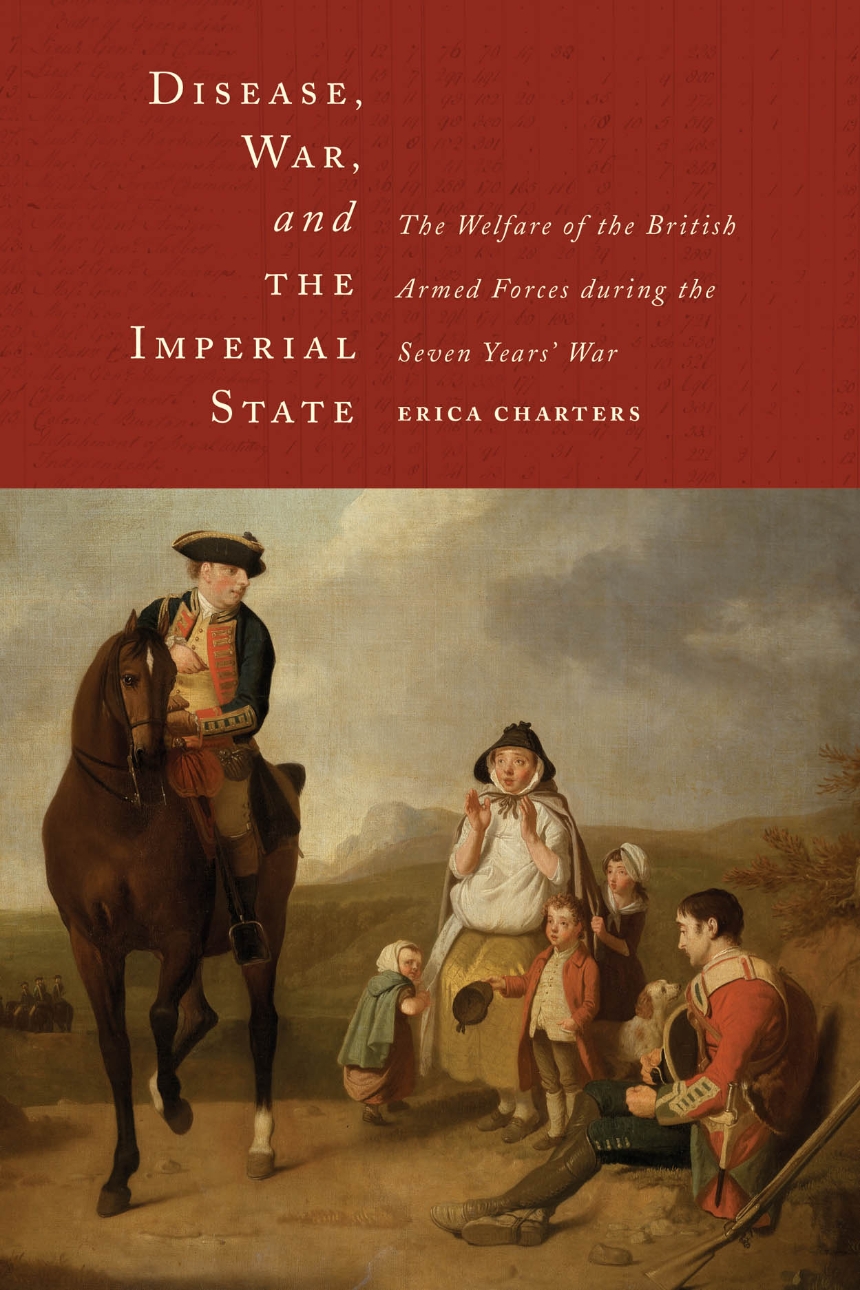Disease, War, and the Imperial State
The Welfare of the British Armed Forces during the Seven Years’ War
Disease, War, and the Imperial State
The Welfare of the British Armed Forces during the Seven Years’ War
In Disease, War, and the Imperial State, Erica Charters demonstrates how disease played a vital role in shaping strategy and campaigning, British state policy, and imperial relations during the Seven Years’ War. Military medicine was a crucial component of the British war effort; it was central to both eighteenth-century scientific innovation and the moral authority of the British state. Looking beyond the traditional focus of the British state as a fiscal war-making machine, Charters uncovers an imperial state conspicuously attending to the welfare of its armed forces, investing in medical research, and responding to local public opinion. Charters shows military medicine to be a credible scientific endeavor that was similarly responsive to local conditions and demands.
Disease, War, and the Imperial State is an engaging study of early modern warfare and statecraft, one focused on the endless and laborious task of managing manpower in the face of virulent disease in the field, political opposition at home, and the clamor of public opinion in both Britain and its colonies.
296 pages | 3 halftones, 1 map, 1 table | 6 x 9 | © 2014
History: European History, Military History
Reviews
Table of Contents
List of Illustrations
List of Abbreviations
Acknowledgments
Introduction
1. Wilderness Warfare, American Provincials, and Disease in North America
2. The Black Vomit and the Provincial Press: The Campaigns in the West Indies
3. Flux, Fever, and Politics: The European Theater of War
4. The Royal Navy’s Western Squadron: Trials, Innovation, and Medical Efficacy
5. Adaptation and Hot Climates: Fighting in India
6. Imperial War at Home: The Welfare of French Prisoners of War
Epilogue
Bibliography
Index
Awards
Society for Army Historical Research: Award for Best First Book
Won
American Association for the History of Medicine: George Rosen Prize
Won
